Mexico is increasingly becoming a top destination for expatriates, including LGBTQ+ individuals looking for a change in lifestyle, affordability, and a welcoming community. With vibrant cultural offerings, lower living costs, and several Ggay-friendly locations, Mexico has something for everyone. This guide covers the pros and cons of moving to Mexico, steps for obtaining residency, and a list of the best places for LGBTQ+ expats to live.
I’m passionate about sharing what I’ve learned through my own experiences relocating and living in Mexico as a gay individual. I’ve traveled to Mexico frequently over the years, exploring different cities and connecting with local communities, and last year, I made the move to Guadalajara from the U.S. This firsthand experience has given me a deep understanding of the practical steps involved in moving, as well as the cultural nuances and unique needs of LGBTQ+ expats in Mexico. I’m here to offer genuine, useful insights to help others make informed decisions about starting a new life in this incredible country.
Table of Contents
Toggle📌 Table of Contents
Why Move to Mexico?
From affordable living to inclusive communities, here’s a closer look at why LGBTQ+ individuals are choosing to relocate to Mexico.
Pros and Cons of Living in Mexico
➡️ Affordable Living
The cost of living in Mexico is significantly lower than in the U.S., enabling expats to live comfortably on a moderate budget. For LGBTQ+ individuals, this affordability provides the freedom to enjoy social activities, travel, and a vibrant lifestyle. My livings expenses are about 60% less than what I was spending monthly in the USA.
➡️ LGBTQ+ Acceptance
Mexico is among the most LGBTQ+-friendly countries in Latin America. Same-sex marriage is legal across the country, and several cities, like Mexico City, Puerto Vallarta, and Puebla, have supportive LGBTQ+ communities, making it easier for expats to feel at home.
➡️ Cultural Richness
Mexico is known for its cultural diversity, rich history, and unique blend of Indigenous, Spanish, and modern influences. This cultural richness is evident in cities like Oaxaca, Puebla, and San Miguel de Allende, where festivals, art, and cuisine thrive.
➡️ Close Proximity to the U.S.
Mexico’s location allows LGBTQ+ expats to stay close to friends and family back home, with easy access to flights between Mexico and major U.S. cities.
➡️ Diverse Climate Options
Whether you’re looking for a tropical beach, cool highland climate, or bustling urban center, Mexico’s diverse geography makes it possible to find the ideal climate to suit your preferences.
➡️ Language Barrier
Although English is widely spoken in popular expat areas, learning Spanish will make day-to-day interactions easier and help you connect with locals.
➡️ Healthcare
Mexico offers high-quality healthcare at an affordable price, but the quality and availability can vary by region. LGBTQ+-friendly healthcare providers are generally available in major cities.
➡️ Cultural Adjustments
Life in Mexico can require adjusting to a different pace and style. Bureaucratic ➡️ processes, for example, can be slower than in the U.S., and understanding cultural norms may take time. There is also less convenient options than the USA for shopping, etc.
➡️ Safety Concerns
Safety varies across Mexico, and it’s essential to research specific locations. Popular expat areas are generally safe, but understanding local safety issues is important. My best recommendation is don’t attract too much attention and use your common sense.
Getting Residency in Mexico
To live in Mexico long-term, expats typically need a residency visa. There are many people who travel back and forth from the USA and leverage the “180 days” when entering Mexico. The downside to this approach is that it is up to the officer stamping passports at the airport and you can easily get less than 180 days.
➡️ Temporary Resident Visa
Ideal for those looking to stay in Mexico for up to four years, this visa requires proof of financial solvency.
➡️ Permanent Resident Visa
This visa is for individuals who plan to stay in Mexico indefinitely and provides nearly the same rights as Mexican citizens, except for voting.
➡️ Work Visa
If you plan to work for a Mexican employer, you’ll need a work visa, which typically requires a job offer from a Mexican company. Many LGBTQ+ expats work remotely for employers abroad, which can be done under temporary or permanent residency.
➡️ Financial Requirements (estimates for 2025)
Residency visas require proof of income and/or savings. Requirements vary and can change due to exchange rates, so it’s best to check with the Mexican consulate you will apply.
- Temporary Residency: Approximately $73,370 USD in Savings (monthly ending balance for the last 12 months) or $4,400 USD a month in retirement or income
- Permanent Residency: Approximately $293,500 USD in Savings (monthly ending balance for the last 12 month) or $7,337 USD a month in retirement income (there may be some consulates that consider regular income instead of retirement)
➡️ Application Process
Residency applications usually start at a Mexican consulate in the USA (or Canada). Prepare documents like financial statements, identification, and passport. The requirements vary by consulate as well as ease of setting up appointments for the process. I utilized the Orlando consulate (while I was still living in San Francisco), the process was very smooth and easy.
➡️ Enter Mexico and Complete the Process
With your visa in hand, it’s time to head to Mexico. But don’t get too comfortable yet—you’ll need to complete a few more steps to secure your residency card.
- Enter Mexico Within 180 Days: Once your visa is issued, you have 180 days to enter Mexico. After arrival, you’ll have 30 days to start the residency card application process.
- Visit the INM Office (Instituto Nacional de Migración): Head to the local immigration office (INM) in the city you plan to live. Here, you’ll submit additional documents, including your visa, passport, and application form.
- Complete Biometrics and Finalize Application: At the INM office, they’ll take your fingerprints and photograph again. Once everything’s approved, they’ll issue your residency card, which you’ll need to pick up in person.
➡️ Renewal or Transition to Permanent Residency (for Temporary Residents)
If you start with a temporary residency, remember that it needs annual renewals. After your first year of temporary residency, you can renew for 1 year or up to 3 years. After four years of temporary residency, you can transition to permanent residency if you wish. The transition process is generally straightforward, requiring less documentation than your initial application.
*️⃣ Regularization Process
The regularization program was all but ended in March 2025. You can apply for residency through this process still if you have been living in Mexico without a visa since 2022.
Top Cities in Mexico for LGBTQ+ Expats
Mexico has several LGBTQ+-friendly cities and towns with unique cultural and lifestyle offerings. Here’s a look at some of the best destinations for LGBTQ+ expats.
Mexico City
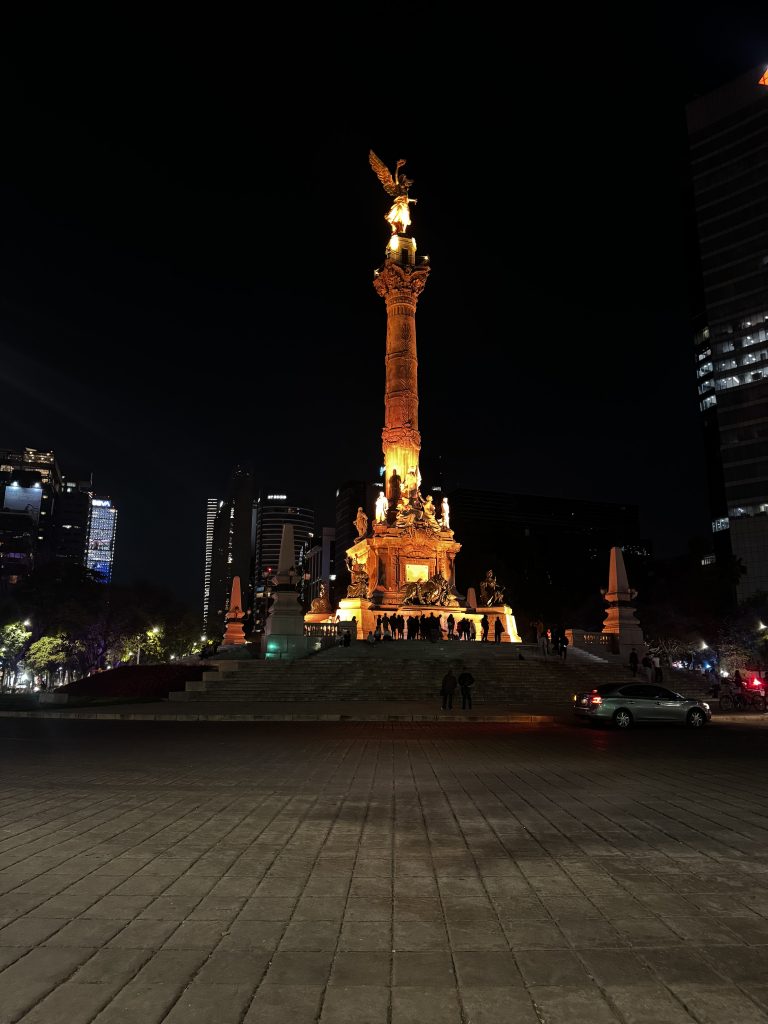
Mexico City’s Zona Rosa neighborhood is a hub for the LGBTQ+ community, featuring gay bars, LGBTQ+-owned businesses, and a strong sense of community. The city is known for its vibrant cultural scene, architecture, and beautiful parks. The cost of living varies greatly depending on if you decide to live in a trendy neighborhood like Condesa or Roma. Mexico City has one of the largest airports in the Americas and you can fly to alsmot every major city in the USA and Canada non stop.
FOR MORE ON MEXICO CITY:
TOP THINGS TO DO IN MEXICO CITY
Puerto Vallarta
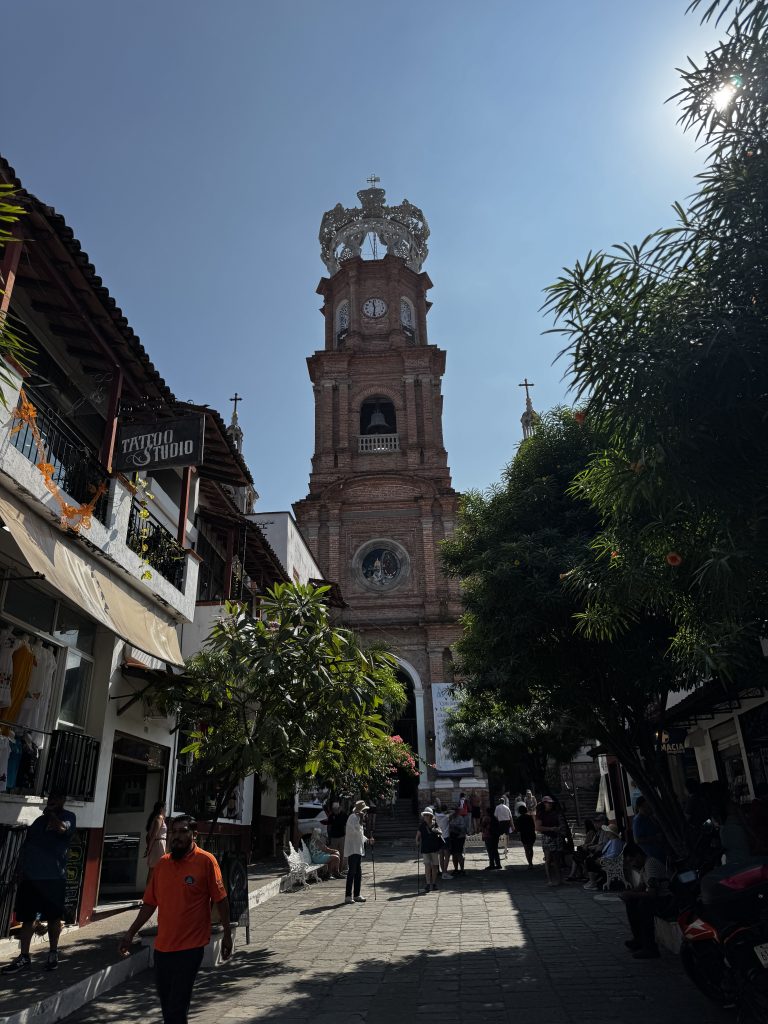
Puerto Vallarta, often referred to as Mexico’s “gay capital,” is known for its LGBTQ+-friendly beach lifestyle. The Romantic Zone is filled with gay-friendly bars, clubs, and businesses, creating a relaxed and social atmosphere for LGBTQ+ expats. Living costs vary greatly depending on where you live, Condos in Zona Romantica can be similarly priced to the USA but less than a mile away the prices go down dramatically. Puerto Vallarta has one of the large airports in Mexico and you can fly direct to many destinations to the USA and Canada.
FOR MORE ON PUERTO VALLARTA:
THINGS TO DO IN PUERTO VALLARTA
GAY FRIENDLY HOTELS IN PUERTO VALLARTA
Guadalajara
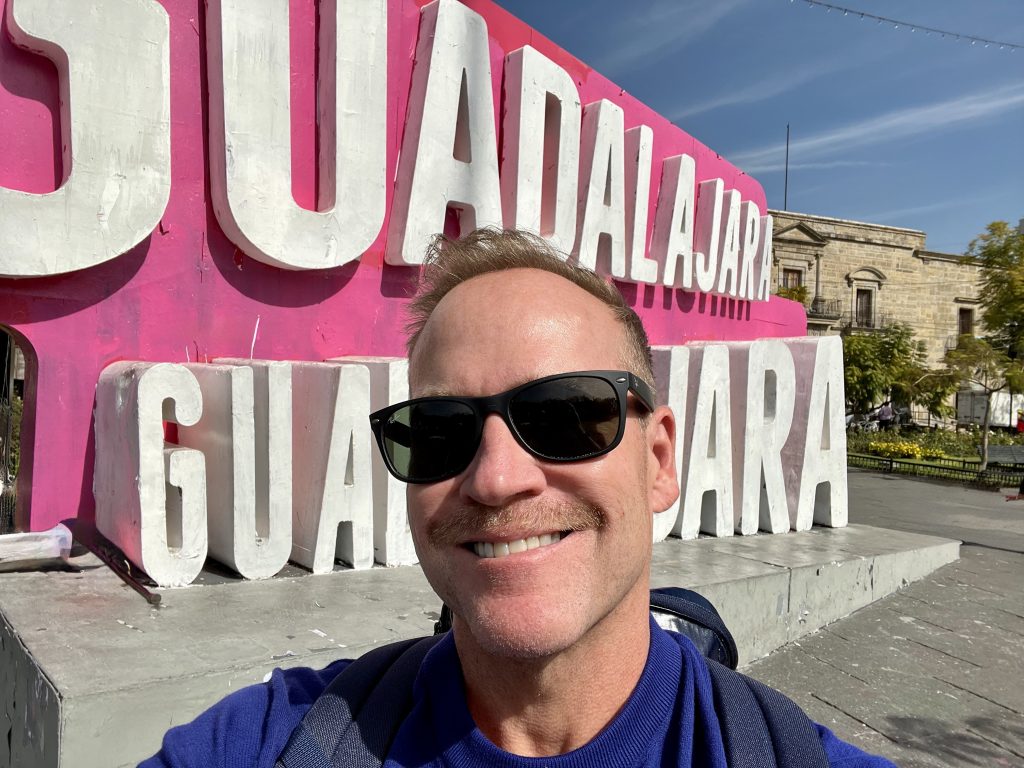
Known as the birthplace of mariachi and tequila, Guadalajara is also home to one of Mexico’s largest LGBTQ+ communities and the city is affectionately known as “Gaydalajara”. The Colonia Americana neighborhood has a hip vibe with cafes, galleries, and nightlife, making it a popular choice among LGBTQ+ expats. Providencia is a lovely leafy neighborhood for a very peaceful life. The Guadalajara International Airport has been undergoing expansion and recovations in preparation for the 2026 World Cup. Many airlines have added non stop flights to major USA and Canadian cities.
FOR MORE ON GUADALAJARA:
Lake Chapala
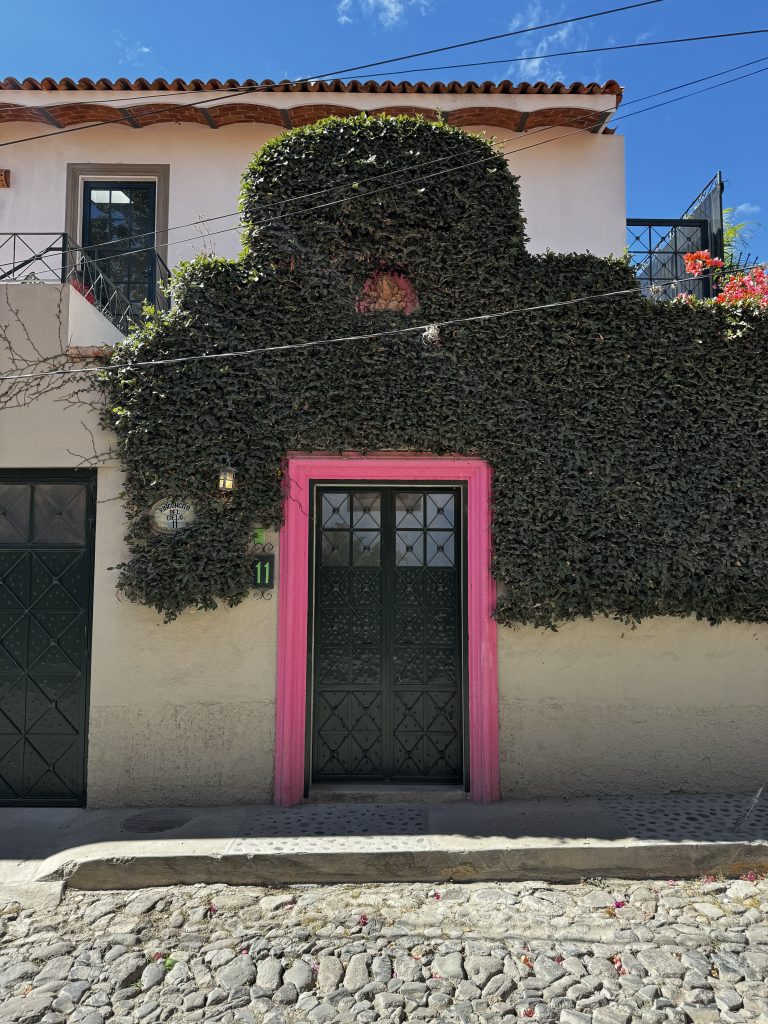
Lake Chapala, about 1 ¼ hours from Guadalajara, has one of the largest expat communities in Mexico. The lake setting, temperate climate, and close-knit community make it an appealing choice for LGBTQ+ retirees and expats.
Mérida
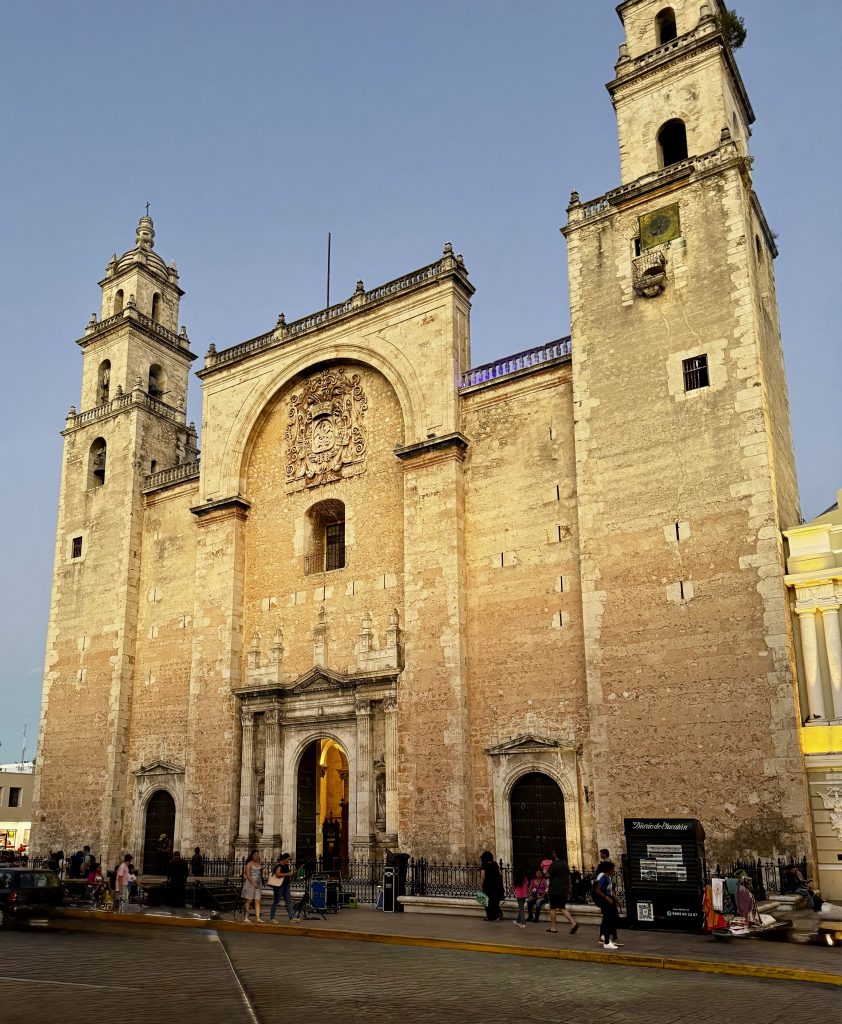
The capital of Yucatán, Merida is known for its colonial architecture, safety, and growing LGBTQ+ community. It’s popular with expats for its high quality of life, proximity to beaches, and LGBTQ+-friendly businesses.
FOR MORE ON MERIDA:
Playa del Carmen
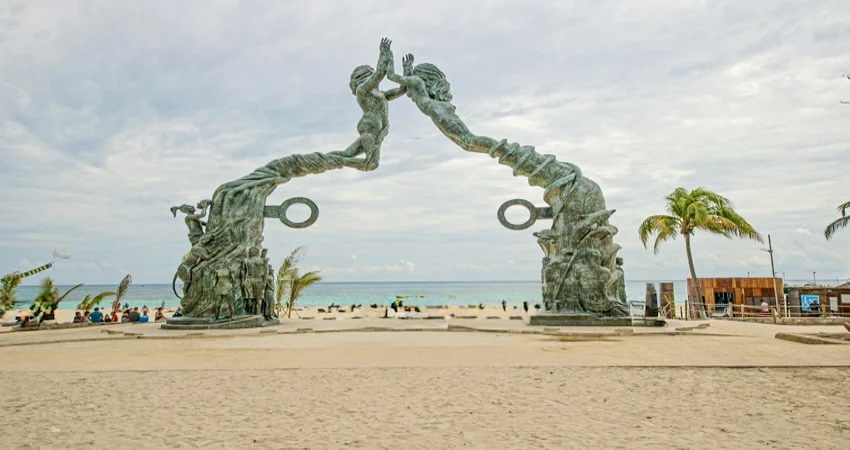
Located on the Riviera Maya, Playa del Carmen combines beachside living with a tight-knit LGBTQ+ community. It’s close to major attractions like Tulum and Cancun and offers a mix of LGBTQ+-friendly bars, cafes, and social events.
San Miguel de Allende
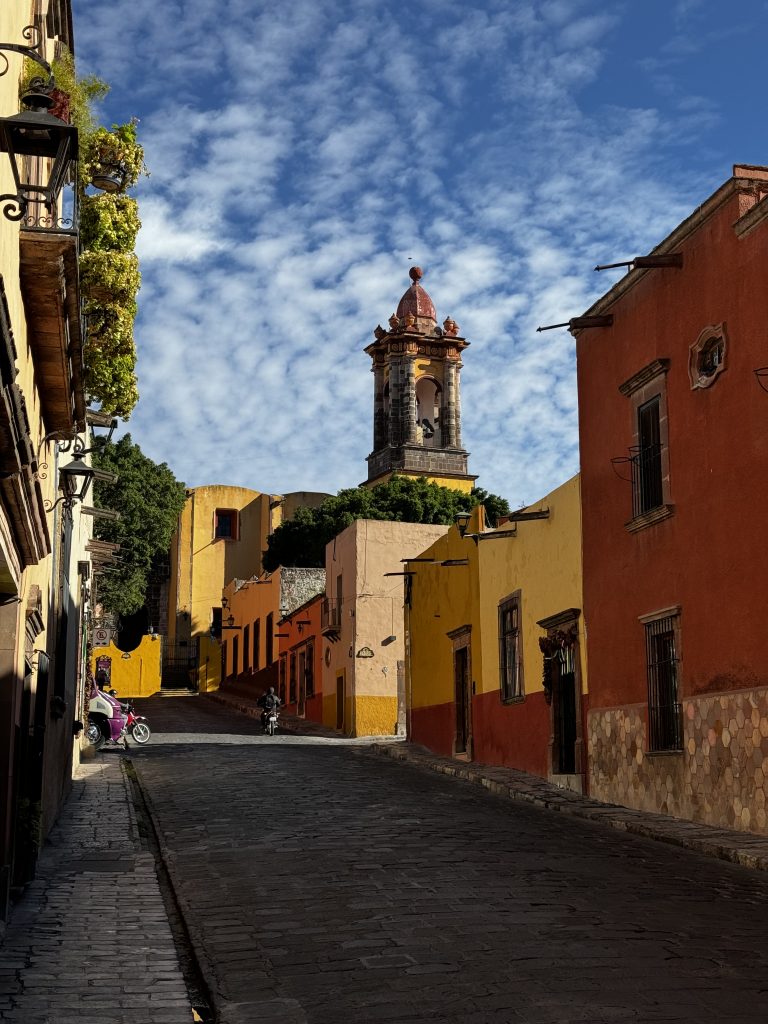
Known for its art scene, colonial charm, and a vibrant expat population, San Miguel de Allende is increasingly LGBTQ+-friendly. The city’s cultural scene and beautiful architecture make it a popular choice for creative individuals.
FOR MORE ON SAN MIGUEL DE ALLENDE:
Queretaro
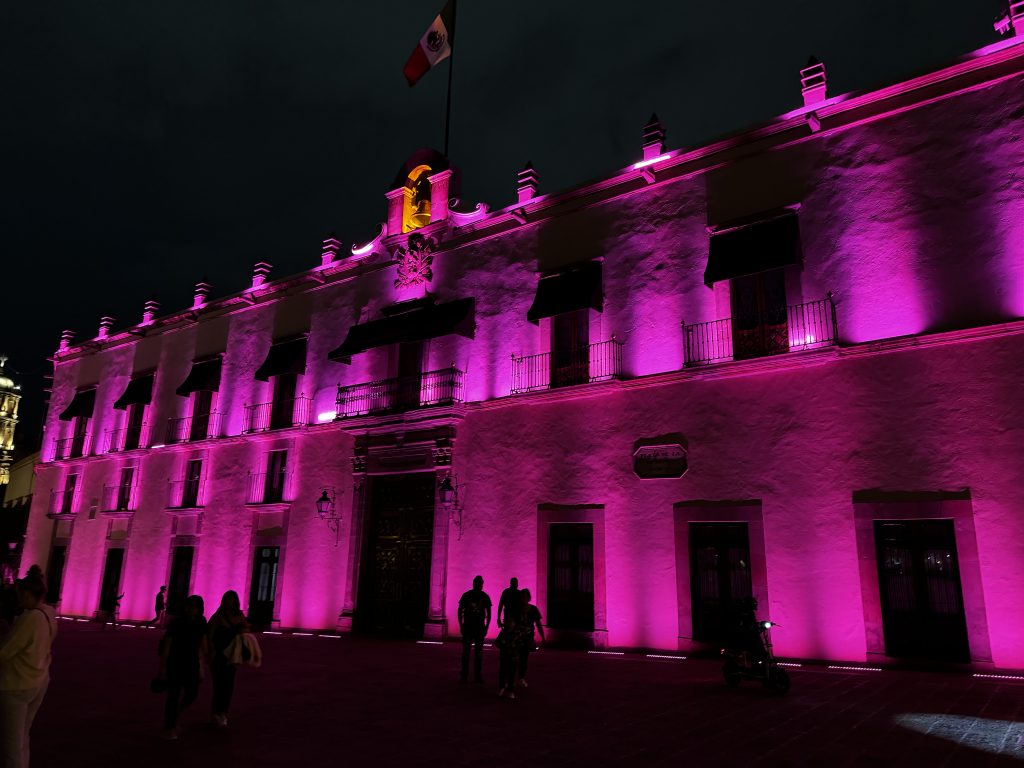
A UNESCO World Heritage city, Querétaro combines colonial charm with modern infrastructure. Although more conservative than cities like Mexico City, it has a growing expat community and is considered safe and affordable.
FOR MORE ON QUERETARO:
Puebla
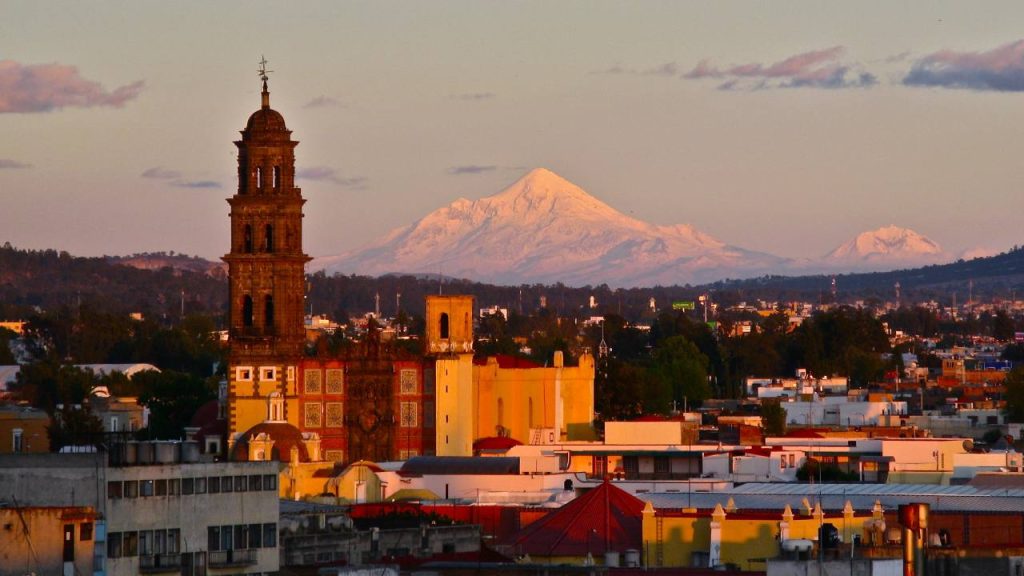
Puebla is a beautiful, colonial city known for its stunning architecture, historic sites, and culinary scene. It’s increasingly popular with LGBTQ+ expats due to its affordable cost of living, excellent quality of life, and welcoming atmosphere. Puebla’s proximity to Mexico City also makes it easy for residents to access a larger LGBTQ+ community while enjoying the charm and slower pace of a smaller city. The city hosts an annual pride event, and its cultural offerings—ranging from music festivals to art exhibits—create an inclusive environment for LGBTQ+ individuals.
Oaxaca
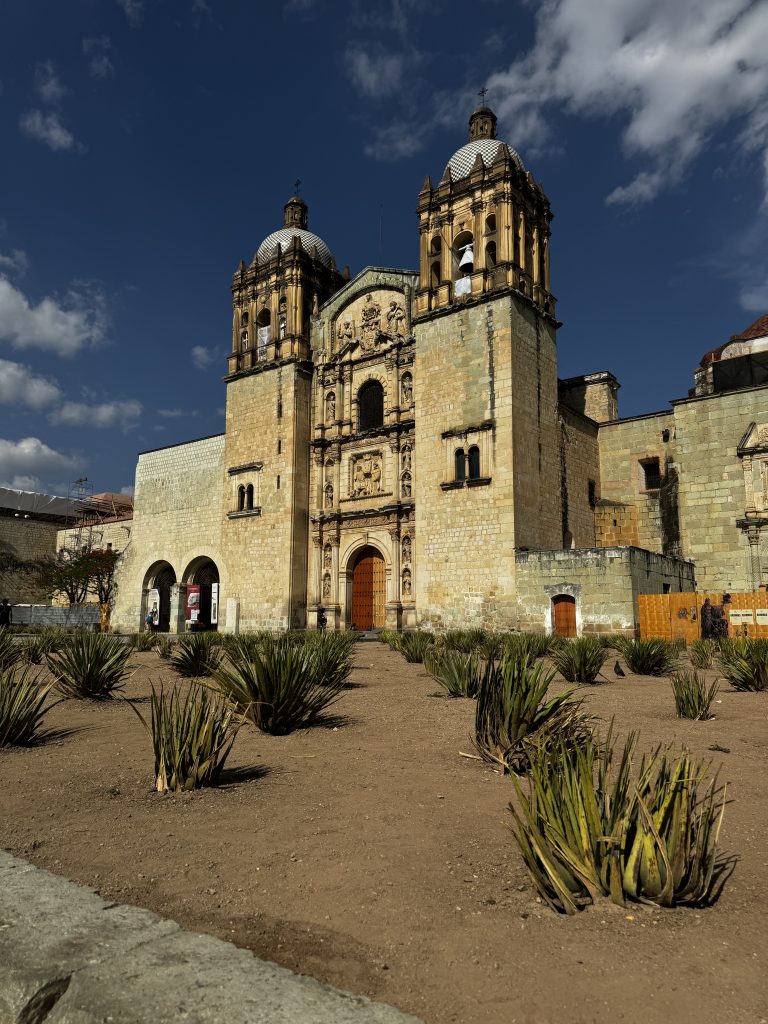
Oaxaca City is known for its vibrant arts scene, Indigenous heritage, and inclusive community. While the LGBTQ+ community is smaller here, the city has a welcoming atmosphere, with a growing number of LGBTQ+-friendly establishments.
FOR MORE ON OAXACA:
San Cristobal de la Casas
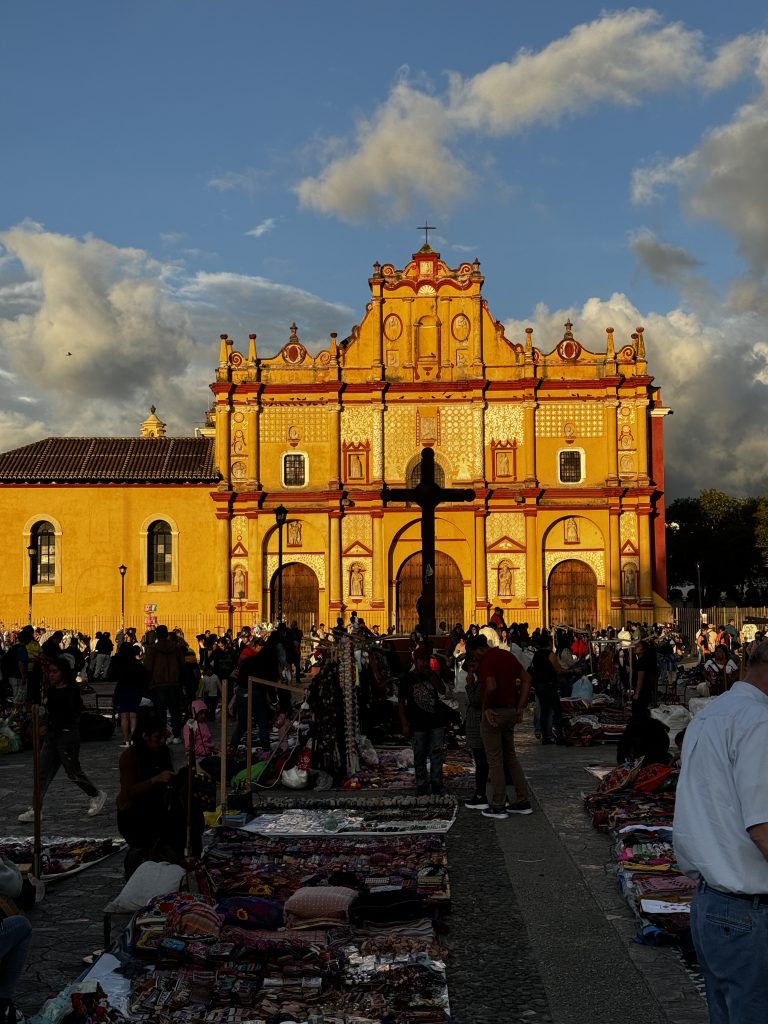
San Cristóbal is a scenic, bohemian town known for its Indigenous culture and artsy atmosphere. It offers a laid-back lifestyle and a small but supportive LGBTQ+ community.
FOR MORE ON SAN CRISTOBAL:
La Paz
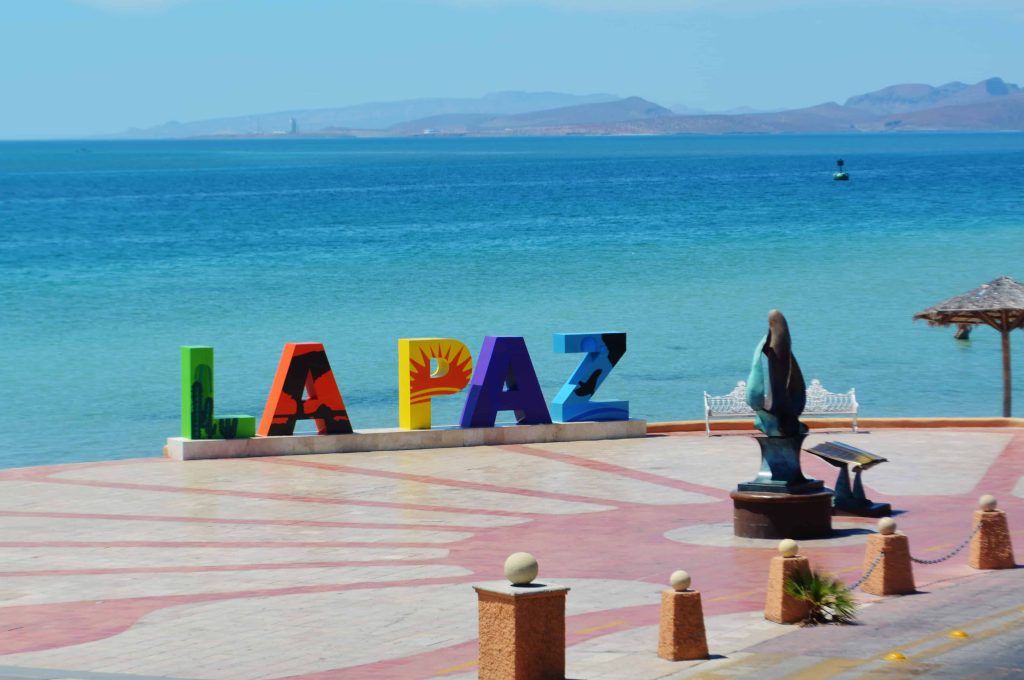
A quieter beach town on the Baja California peninsula, La Paz is known for its beautiful beaches, outdoor activities, and laid-back vibe. Gay expats seeking a slower pace will find this a welcoming and scenic choice.
Tips for Moving to Mexico
➡️ Explore First
I recommend checking out a few cities in Mexico that may appeal to you first. People always ask, where should I move? And my answer is always, it Depends.
➡️ Connect with Local LGBTQ+ Groups
Joining local LGBTQ+ groups or expat communities can help you settle in, make friends, and find LGBTQ+-friendly resources.
➡️ Learn Spanish
Basic Spanish is helpful, especially outside of tourist areas. Learning the language can make your experience more enjoyable and help you connect with locals.
➡️ Participate in Local Events
Many cities in Mexico have LGBTQ+ pride events and cultural festivals. Getting involved is a great way to meet new people and feel more at home.
➡️ Build a Network
Whether through online LGBTQ+ expat groups or local meetups, building a social network will ease your transition and provide support.
FAQS
Why are LGBTQ+ expats choosing to move to Mexico?
Mexico offers an affordable cost of living, vibrant culture, and a variety of LGBTQ+-friendly communities. Many expats are drawn to the country’s inclusive attitudes, warm climate, proximity to the U.S., and the opportunity for a more relaxed lifestyle.
Is Mexico safe for LGBTQ+ individuals?
Mexico’s safety varies by region. Major cities and popular expat destinations, like Mexico City, Puerto Vallarta, and Merida, are generally considered safe and inclusive. LGBTQ+ individuals may encounter conservative attitudes in some rural areas, so researching each location is key.
What are the most LGBTQ+-friendly cities in Mexico?
Top LGBTQ+-friendly cities include Mexico City, Puerto Vallarta, Guadalajara, Merida, and Playa del Carmen. San Miguel de Allende, Oaxaca City, and Lake Chapala also offer welcoming communities for LGBTQ+ expats. Each city has its unique culture and amenities, so exploring options is recommended.
Do I need to learn Spanish to live in Mexico?
While English is widely spoken in expat communities and tourist areas, learning Spanish is beneficial for day-to-day interactions, especially in non-tourist areas. Basic Spanish can significantly enhance your experience and help you connect with locals.
How can I apply for residency in Mexico?
The most common options are the Temporary Resident Visa, which is valid for up to four years, and the Permanent Resident Visa, which is indefinite. Both options typically require proof of financial solvency. Applications start at a Mexican consulate outside of Mexico, and documents such as financial statements are necessary.
Is healthcare in Mexico LGBTQ+-friendly?
Major cities like Mexico City and Guadalajara have LGBTQ+-friendly healthcare providers, and private hospitals often offer high-quality care. Health insurance is also affordable, though it’s recommended to research providers and find LGBTQ+-friendly options.
Can I work remotely in Mexico?
Yes, many expats work remotely for companies outside of Mexico. This setup typically requires either a Temporary or Permanent Resident Visa. If you plan to work for a Mexican employer, you’ll need a work visa, which is generally tied to an employment offer.
What are the financial requirements for residency in Mexico?
The financial requirements vary based on currency fluctuations but generally include proof of a steady income or a minimum amount in savings. The Mexican consulate can provide up-to-date financial requirements.
Are there LGBTQ+ events or groups I can join in Mexico?
Yes, many cities in Mexico have LGBTQ+ events, pride parades, and expat groups. Mexico City and Puerto Vallarta host large pride events, and most major cities have LGBTQ+ support networks or social groups.
How can I connect with other LGBTQ+ expats in Mexico?
Joining LGBTQ+ groups on social media or expat communities online is a great way to start. Many cities also have in-person meetups, LGBTQ+ community centers, and social gatherings, providing a support network for newcomers.
What is the cost of living in Mexico for expats?
The cost of living in Mexico varies by city but is generally much lower than in the U.S. Rent, groceries, and healthcare are affordable, and many LGBTQ+ expats find they can live comfortably on a moderate budget, particularly outside of tourist hotspots.
Is it easy to find LGBTQ+-friendly housing in Mexico?
Finding LGBTQ+-friendly housing is generally easy in larger cities and popular expat communities. In areas like Mexico City, Puerto Vallarta, and San Miguel de Allende, there are many inclusive neighborhoods and LGBTQ+-friendly landlords.
Final Thoughts
Mexico’s combination of cultural richness, affordability, and inclusivity makes it a top choice for LGBTQ+ expats. By researching residency options, LGBTQ+-friendly cities, and local customs, you can find a welcoming home in Mexico. Whether you’re drawn to the urban energy of Mexico City, the beachside vibes of Puerto Vallarta, or the colonial charm of Puebla, there’s a place in Mexico that suits everyone’s lifestyle.
Moving to Mexico is a significant step, but with careful planning and an open mind, it could be the perfect place for your next chapter.
About the Author
Tim is a seasoned gay travel writer and the creator of Out in Mexico, a dedicated resource for gay travelers exploring Mexico’s vibrant destinations. After relocating to Guadalajara, he has spent years immersing himself in Mexico’s gay culture, from the iconic beaches of Puerto Vallarta to the nightlife of Mexico City.
With firsthand experience in Mexico’s gay scene, Tim has personally visited the bars, hotels, and events featured in this guide. His insights have helped gay travelers plan unforgettable trips while ensuring they feel safe, welcomed, and informed.
When he’s not writing, you’ll find him sipping a mezcal cocktail at a bar in Colonia Americana or travel to a new exciting destination in Mexico.
📍 Follow his adventures: @i.am.out.in.mexico
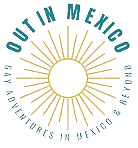

No Comments